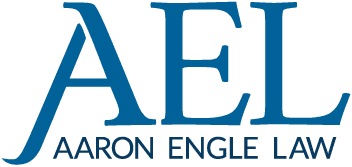
- How to identify concussions
- What to do if you or another person has one
- Short- and long-term damage
Concussion awareness is extremely important to the legal team at Aaron Engle Law. That’s because one of our partners, Attorney Mike Nelson, is a brain injury survivor. We have extensive experience with TBI cases and understand the nuances of this particular injury along with the applicable laws. Treating a TBI can be an expensive, lifelong commitment. Our Seattle brain injury attorneys can help you pursue the compensation you need and deserve.
What is a concussion?
People often describe them as “mild” traumatic brain injuries (mTBI), but there’s no such as a “mild” brain injury, and concussions can cause serious medical issues. Often the result of falls, car accidents, intentional violence, and playing contact sports like football, the long-term effects of a concussion can include trouble concentrating, memory loss, irritability, light sensitivity, chronic headaches, and vertigo.
A concussion is just one type of Traumatic Brain Injury (TBI). Technically, concussions occur when a blow to the head disrupts neuronal membranes that cause a metabolic imbalance in the brain. Damage from a concussion isn’t always apparent right after a hard hit. Sometimes it takes days to recognize the symptoms.
Concussion symptoms
If you or a loved one suffered a blow to the head, it is important that you seek medical attention as soon as possible. A doctor can examine you and look for signs of a concussion others may miss.
Symptoms of a concussion can include:
- Slurring speech
- Blurry vision
- Foggy feeling
- Hearing issues
- Headache
- Short-term memory deficits
- Poor motor coordination
- Muscle spasms
- Paralysis
- Seizure
- Nausea
- Difficulty maintaining balance
- Fatigue
- Mood swings
When signs of a concussion are observed, it is important that you get medical help right away. Go to a physician or an emergency room, the National Concussion Awareness Day group suggests. Other tips for recovery include:
- Rest. Do not rush back to school or work.
- Avoid further damage. Do not participate in activities that could injure your head another time. Second-impact syndrome, though rare, is a fatal condition that occurs when a person suffers another concussion before the first one has had enough time to heal.
Washington concussion law
The State of Washington dedicates resources to TBI treatment, awareness, and prevention. Here, we have the Lystedt Law, which restricts when high school students can return to play after receiving a sports injury. If there is a concussion, the student cannot return to play until they get a clean bill of health from a medical professional.
Research on the law’s effectiveness says concussions have doubled since Lystedt.
However, the same researchers say that this is most likely due to heightened awareness of the issue. There may not be more concussions happening, per se, but there are more people treating them. An overall study of the more than 40 states with similar student athlete concussion laws says that the rules are effective at increasing treatment and reducing injury severity.
Legal help is available for brain injury victims
If you or a loved one suffered a brain injury in an accident, it’s critical that you have a clear understanding of your legal rights and options. At Aaron Engle Law, we know from first-hand experience the impact a brain injury can have on someone’s life. That’s why we fight to build strong cases for maximum compensation.
Contact us today to schedule a free case consultation with an experienced Seattle brain injury attorney. We have offices in Tacoma and Seattle, and we would be honored to discuss your potential legal case.
